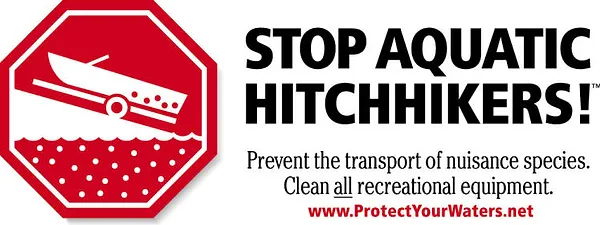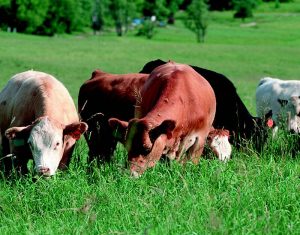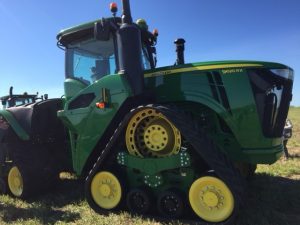CLICK HERE for the latest market quotes from the Iowa Agribusiness Network!
CLICK HERE for the latest market quotes from the Brownfield Ag News Network!
CLICK HERE for the latest market quotes from the Iowa Agribusiness Network!
CLICK HERE for the latest market quotes from the Brownfield Ag News Network!
CEDAR RAPIDS, Iowa (KCRG) – For 4th time in the United States, the CDC has identified a case of highly pathogenic avian influenza (HPAI) in a human being. Officials say that as with previous cases, the person is a worker on a dairy farm where cows tested positive for the virus.
The person reportedly only showed symptoms of the virus in their eyes, and after receiving treatment, has recovered.
Based on the information available, the CDC says the infection does change the health risk assessment for the U.S. general public in relation to HPAI. However, officials do say that the development underscores the importance of taking precautions when exposed to infected animals.
The CDC recommends:
More information on the virus and health recommendations can be found here.
(Des Moines, Iowa) – The Iowa Department of Natural Resources (DNR) reminds all boaters and anglers to check for unwanted hitchhikers on their boats and equipment this Fourth of July to help protect Iowa lakes and streams. Aquatic invasive species move from one water body to another by hitchhiking on boats, in bait buckets and on other equipment used in the water. They can create serious problems for Iowa waters and negatively impact the quality of outdoor recreation experiences. Kim Bogenschutz, aquatic invasive species coordinator for the Iowa DNR, says “Aquatic invasive species can reduce native species and make lakes and rivers unusable for boaters, anglers and swimmers.”
These invasive species often grow quickly and spread fast when brought to another lake or stream due to a lack of natural predators or competitors. Boaters and anglers can help prevent the spread of aquatic invasive species to new water bodies by cleaning, draining and drying their boats and equipment after each time on the water.

It is illegal to possess or transport aquatic invasive species or to transport any aquatic plants on water-related equipment in Iowa. Signs posted at public accesses identify infested waters and remind boaters to stop aquatic hitchhikers. Iowa law also requires boaters to drain all water from boats and equipment before they leave a water access and to keep drain plugs removed or opened during transport. It is also illegal to introduce any live fish or plants, except for hooked bait, into public waters.
Learn more about aquatic invasive species, including a list of infested waters in the current Iowa Fishing Regulations or at www.iowadnr.gov/ais.
A man from northwest Iowa who defrauded pork producers while working as the regional manager of an Iowa livestock dealer, “Lynch Livestock,” was sentenced on June 24, 2024, to six months in federal prison. The U-S Attorney’s Office for the Northern District of Iowa reports 52-year-old Robert Harry Bickerstaff, from Rock Rapids, received the prison term after a December 1, 2023, guilty plea to one count of wire fraud. Bickerstaff was released on the bond previously set and is to surrender to the United States Marshal on a date yet to be set.
At plea and sentencing hearings, and in his plea agreement, Bickerstaff admitted that he had worked as a regional manager for Lynch Livestock between 2018 and 2021 As a regional manager, Bickerstaff oversaw livestock buying stations in Iowa, Minnesota, and South Dakota. From time to time, Bickerstaff also personally counted, classified, and weighed swine at these stations.
Bickerstaff admitted he participated in a scheme to defraud livestock producers personally and by directing others to (1) falsely and fraudulently lower the weights and reduce the numbers and classifications of swine that producers and sellers had delivered to the dealer at its buying stations; (2) manipulate the weights of swine either manually or using a crowbar, paddle, or other similar object, and thus defeat the electronic scales on which livestock producers’ swine was weighed at his buying stations; and (3) create fraudulent “sort sheets” and scale tickets containing false numbers, classifications, and weights of producers’ swine for transmission to Lynch Livestock’s headquarters in Waucoma, Iowa. Finally, concerned about a potential investigation into his conduct in early 2021, Bickerstaff instructed others to destroy anything with his name on it.
Bickerstaff held a degree in Agribusiness and was experienced in the pork industry. Bickerstaff was a pork producer himself. In February 2022, Bickerstaff won a “Hog Wild” award from a statewide pork producers’ association for his role in promoting pork in Lyon County. Bickerstaff is the fifth manager of Lynch Livestock sentenced in this livestock fraud scheme.
Billie Joe Wickham, of Waucoma, Iowa, pled guilty on July 15, 2022, to one count of Conspiracy to Defraud the United States. On January 13, 2023, Wickham was sentenced to six months of imprisonment and fined $3,000. Wickham must also serve a three-year term of supervised release after the prison term. There is no parole in the federal system.
Charlie Lynch, of Fort Atkinson, Iowa, pled guilty on July 25, 2022, to one count of Conspiracy to Defraud the United States. On January 13, 2023, Lynch was sentenced to five years of probation and fined $3,000.
Leland “Pete” Blue, of Fredericksburg, Iowa, pled guilty on July 28, 2022, to one count of Conspiracy to Defraud the United States. On January 13, 2023, Blue was sentenced to five years of probation and fined $1,000.
Tyler Thoms, of Fayette, Iowa, pled guilty on August 9, 2022, to one count of Causing a Livestock Dealer to Keep Inaccurate Accounts and Records. On January 13, 2023, Thoms was sentenced to one year of probation.
Bickerstaff’s employer, Lynch Family Companies, Inc., of Waucoma, Iowa, also known as “Lynch Livestock,” pled guilty on July 29, 2022, to one count of Failing to Comply with an Order of the Secretary of Agriculture. On February 10, 2023, Lynch Livestock was sentenced to five years of probation, fined $196,000, and ordered to pay over $3 million in restitution to livestock producers and farmers.
Ag/Outdoor, Heartbeat Today, Podcasts
Jim Field visits with Iowa DNR State Deer Biologist Jace Elliott about a deer population meeting in Atlantic on July 8 at 6:30 pm at the Venue.
Podcast: Play in new window | Download (22.5MB)
Subscribe: RSS
(Radio Iowa) – Iowa State Fair C-E-O Jeremy Parsons says there will be a dairy cattle show at next month’s fair, but other activities involving dairy cattle may be changed or cancelled to protect the animals from the spread of bird flu. “Our job is to showcase all of Iowa agriculture at its peak,” Parsons says, “and so we want to make sure we’re keeping those livestock safe.”
An Iowa Department of Agriculture order that went into effect Monday requires that dairy cattle be tested for bird flu within seven days of moving the cattle from the farm to a fair for a dairy show. Parsons says state fair officials are consulting with the state ag department about what’s best when it comes to how the dairy industry is showcased outside of the show ring.
“There will still be a dairy show at this year’s Iowa State Fair,” Parsons says. “Some of the other features, however, like the milking parlor and the Boulevard of Breeds might look a little bit different.” There are traditionally 70 different breeds of livestock featured in the State Fair’s Avenue of Breeds, including dairy cattle. There’s also a milking parlor on the fairgrounds that showcases the kind of mechanical equipment used in modern dairy operations, along with tutoring sessions for kids, who get to milk a cow themselves if they wish.
Keeping dairy cattle on the fairgrounds for the 11-day run of the State Fair could be an issue, however, during this year’s outbreak of avian influenza in some dairy herds. “We at the State Fair are evaluating our programming right now and we’ll soon be making some announcements,” Parsons says. The Iowa State Fair starts Thursday, August 8th and runs through the Sunday the 18th.
Parsons made his comments during taping of the “Iowa Press” program that will air Friday night on Iowa P-B-S.
(Radio Iowa) – Iowa dairy producers who’ve been impacted by bird flu can now apply for federal emergency funding. The USDA expanded its Emergency Assistance for Livestock, Honeybees, and Farm Raised Fish Program to help cover lost profits from the virus. Dairy farmers are required to discard milk from sick cows to prevent the spread of pathogens.
Matt Russell, executive director of USDA-Iowa Farm Service Agency, says expanding the program supports dairy farmers and creates an incentive to get tested. Russell says, “Because if you are seeing some cows be sick and they happen to have H5N1, then this program kicks in and will provide some support for that loss of production.”
To be eligible for recovery assistance, Russell says producers need a positive test result from the National Veterinary Services Laboratories. “This is a support for farmers that are having decreased production because of H5N1,” he says, “but because it provides that support, it also creates that incentive for farmers to get tested.”

USDA photo
Russell says farmers with a positive test should contact their local FSA office to file a Notice of Loss. Payments are based on milk production averages for specific months.
(Radio Iowa) – Ag equipment maker John Deere is announcing plans to eliminate some 800 jobs at plants in Iowa and Illinois over the coming weeks. It follows word last month the company would shift production of its skid steer loaders and compact track loaders from Dubuque to Mexico by the end of 2026. Iowa Secretary of Agriculture Mike Naig is reacting to the news. “Anytime that you’re hearing about roll backs, layoffs, moving things outside of the state of Iowa or the United States,” Naig says, “you’re concerned about those things, you want to understand them.”
In a statement, the company cited rising manufacturing costs as a key factor, while lower crop prices have also caused a slowdown in new ag equipment sales. Some forecasters predict a 25-percent drop in farm income this year over last. Naig says the agricultural economy in general is experiencing what he called “softness” due to a number of factors. “The announcements that you’ve heard made of late are indicators of very much some softness in the ag economy,” Naig says. “Given the effects of inflation, high input prices, the cost of capital interest rates remaining where they are, all those things are contributing in the ag space to delaying decisions if you can — let’s just go sideways for a little bit.”
 Deere is eliminating more than 200 jobs at its Davenport plant and another 99 in Dubuque at the end of August, and more than 500 in East Moline, Illinois at the end of September. Deere announced earlier this year it’s cutting more than 800 jobs at facilities in Waterloo, Ottumwa and the Des Moines metro. Naig says the souring economic effects aren’t just limited to the ag equipment sector. “That’s also playing out now in some of these announcements that you’re hearing made about even meat processing or manufacturing,” he says. “So, you try to take all that in and look at it holistically, but I do think that it’s certainly sending some signals about a softening in the economy or at least a lack of confidence in the economy, and those are things what we need to be addressing as a country.”
Deere is eliminating more than 200 jobs at its Davenport plant and another 99 in Dubuque at the end of August, and more than 500 in East Moline, Illinois at the end of September. Deere announced earlier this year it’s cutting more than 800 jobs at facilities in Waterloo, Ottumwa and the Des Moines metro. Naig says the souring economic effects aren’t just limited to the ag equipment sector. “That’s also playing out now in some of these announcements that you’re hearing made about even meat processing or manufacturing,” he says. “So, you try to take all that in and look at it holistically, but I do think that it’s certainly sending some signals about a softening in the economy or at least a lack of confidence in the economy, and those are things what we need to be addressing as a country.”
Secretary Naig says it’s imperative for the state to do everything it can to help agriculture and manufacturing continue to thrive, as they are key economic drivers in the state. His comments came Monday as he was in Davis County to tour a local parts fabrication business.